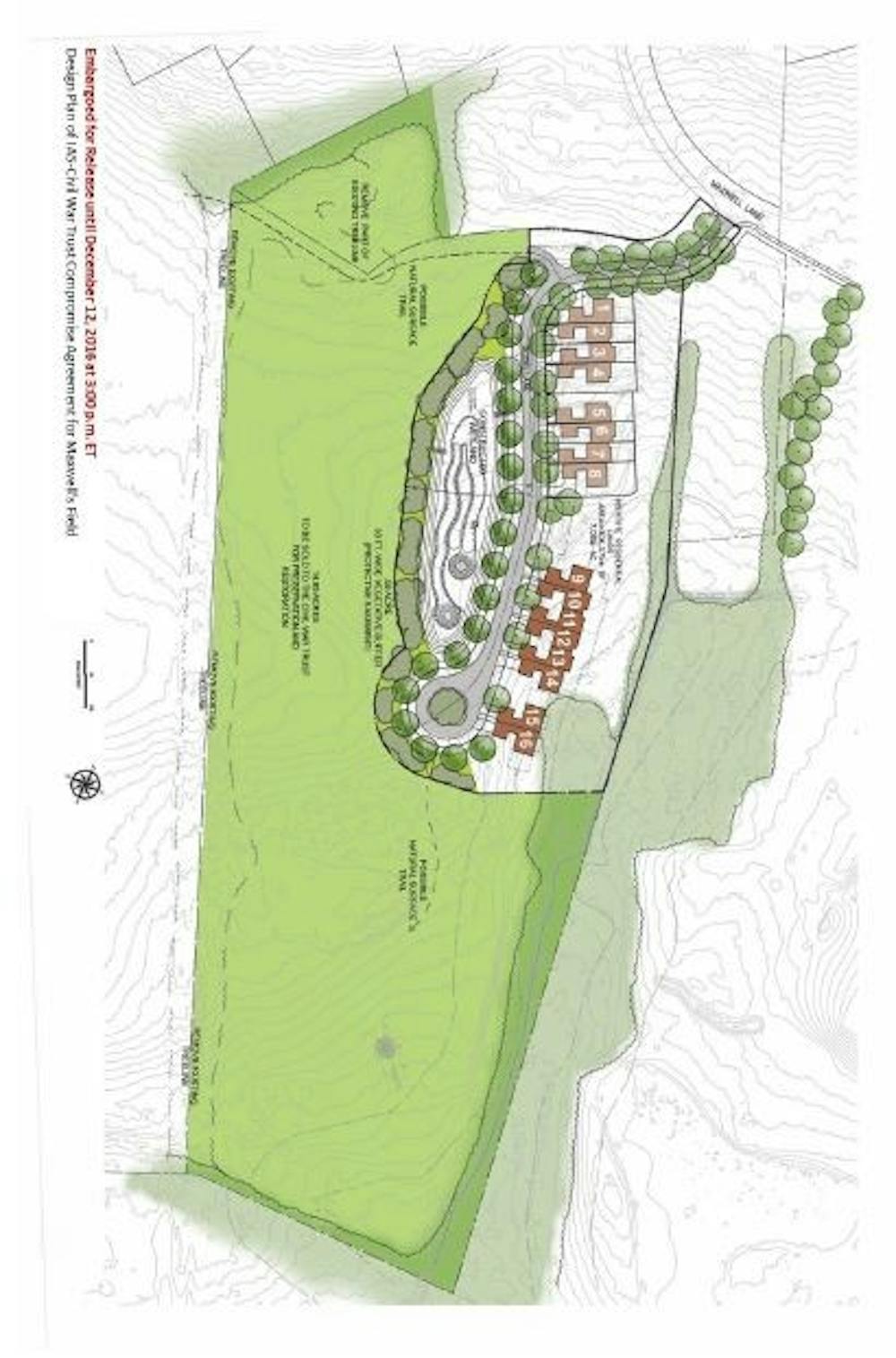The Institute for Advanced Study and the Civil War Trust have reached an agreement to expand the Princeton Battlefield State Park, according to a press release jointly issued by the Institute and the Trust at 3 p.m. on Dec. 12.
Under the agreement, the Civil War Trust will purchase 14.85 acres of land from the Institute for $4 million. The plot of land will be conveyed to the State of New Jersey as an addition to the Princeton Battlefield State Park, and includes about two-thirds of Maxwell’s Field, a primary subject of dispute in previous interactions between the Institute and the Trust.
This agreement will enable the expansion and preservation of the park while also allowing the Institute to construct faculty housing.
Previously, the Institute had announced a plan to construct 15 units of faculty housing on Maxwell’s Field despite moves to preserve the field. Most notably, in November of 2015, the Civil War Trust attempted numerous times to acquire the property from the Institute, eventually offering to buy the 22-acre Maxwell's Field tract for $3.3 million. In September 2016, the Institute reaffirmed the plan by continuing to place bids for housing unit construction.
However, under this new agreement, seven single-family-home lots in the original project plan will be replaced with eight additional townhouses, all located east of Gödel Lane on Maxwell’s Field. No construction work will take place within the Princeton Battlefield Historic Landmark boundary.
The agreement must be reviewed and approved by the Princeton Planning Board and Delaware and Raritan Canal Commission before taking effect.
However, Christine Ferrara, the Director of Communications for the Institute of Advanced Study, expressed confidence that the plans would be approved.
“We’re planning on having both bodies grant us approval, so that’s definitely part of our hope and understanding, considering we do have pre-existing approval for a plan that actually takes up more acreage,” she said.
Ferrara also commented on the most recent round of discussions between the Civil War Trust and the Institute, citing awareness of common objectives as a crucial aspect of the deal.
“We could see that the Trust was interested in doing what they could to free up additional acreage and try and work with the Institute to discuss what possibilities could exist for our housing,” Ferrara said.
Civil War Trust Chief Policy and Communications Officer Jim Campi offered similar sentiments.
“We had the opportunity to meet and get to know one another, and understand that our goals are not mutually exclusive... but it took a little while to get there,” Campi said.
He also praised the deal for securing another plot of historically significant land in addition to Maxwell’s Field, citing the historical relevance of that land as reason for excitement. The plot of land covers 1.12 acres just north of the Maxwell Field property.
Maxwell’s Field is known historically as the site of a decisive counterattack, which arguably turned the tide of the Battle of Princeton. Princeton Battlefield Society Board Secretary Roger Williams explained the significance of the land further in an interview with the ‘Prince.’
“It was on this piece of land on which the Pennsylvania regiments launched their counterattack, with George Washington leading the attack. That’s why this parcel of land is so important,” Williams said.
He also explained the historical significance of the extra plot of land.
“If you were to draw a map of where the British 17th regiment had their line, that’s where it was. The last phase of the battle was on the William Clark Orchard … where that current piece of land is,” Williams said.
Despite the concession of some historically significant land, Williams stated that their mission was nevertheless accomplished, having preserved a large swath of land.
“Are we going to preserve all of that? No. We have to be practical preservationists here,” Williams said.
The announcement of this agreement marks a noticeable improvement in the relations between all interested groups. The controversy surrounding the expansion of the Institute into historically significant lands spans back to at least 1970, when the Princeton Battlefield Area Preservation Society was founded in response to Institute expansion plans, according to Williams.
In Jan. 2016, the ‘Prince’ reported on the Institute’s plans to move forward with construction after discussions between the Civil War Trust and the Institute failed to produce a mutually agreeable outcome. Not long after, in Feb. 2016, the ‘Prince’ reported on the formation of activist groups opposing the construction proposed by the Institute. Most recently, the Oct. 14 print edition of the ‘Prince’ featured a full page advertisement by the Princeton Battlefield Society, which condemned the expansion of the Institute into historic lands, claiming “Princeton deserves better.”
Now, Williams emphasized that the Princeton Battlefield Society was ecstatic when it found out about the deal just a few weeks ago.
“This preserves an important part of the battlefield for generations. And we’re thrilled about that,” Williams said.





